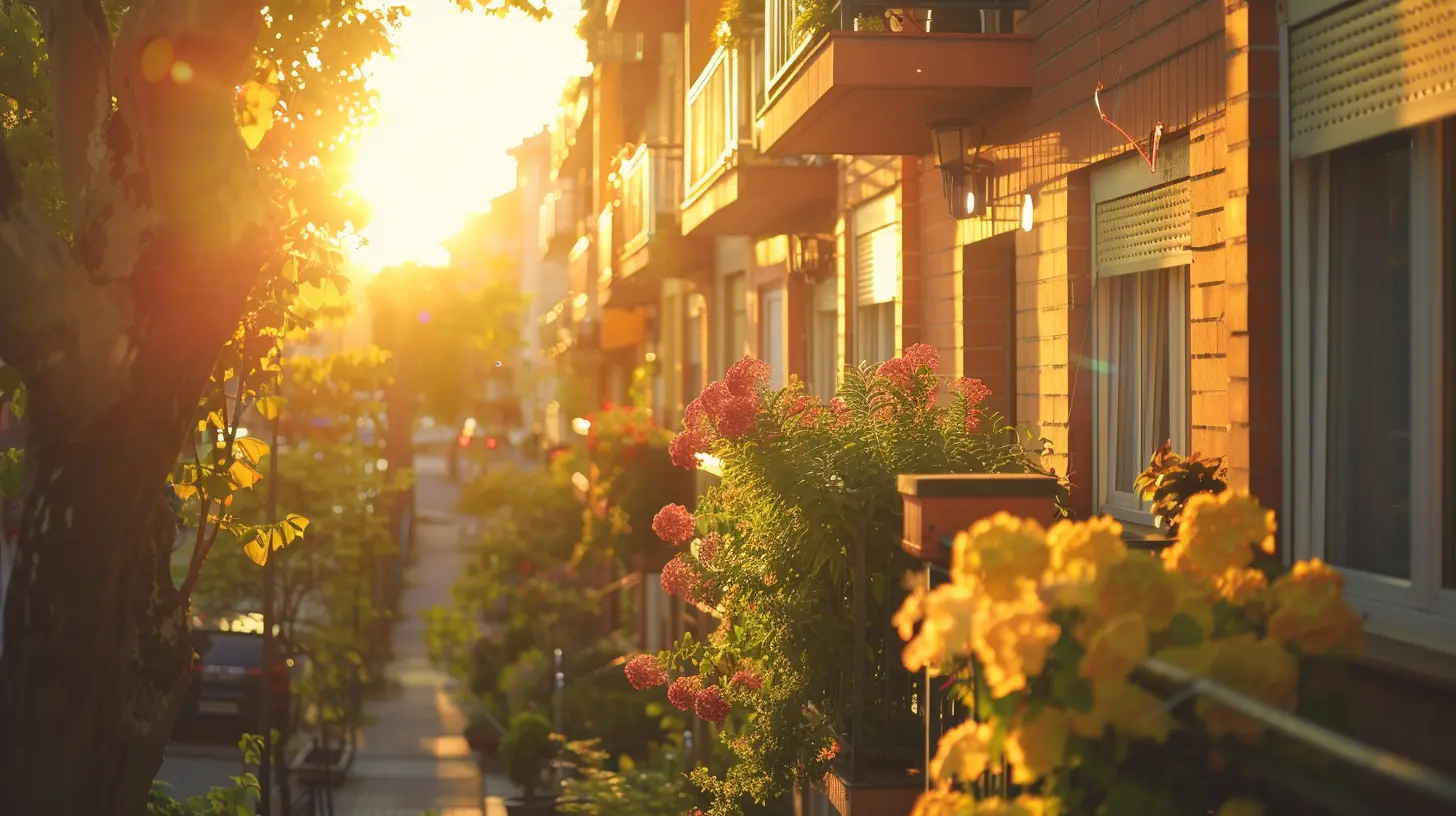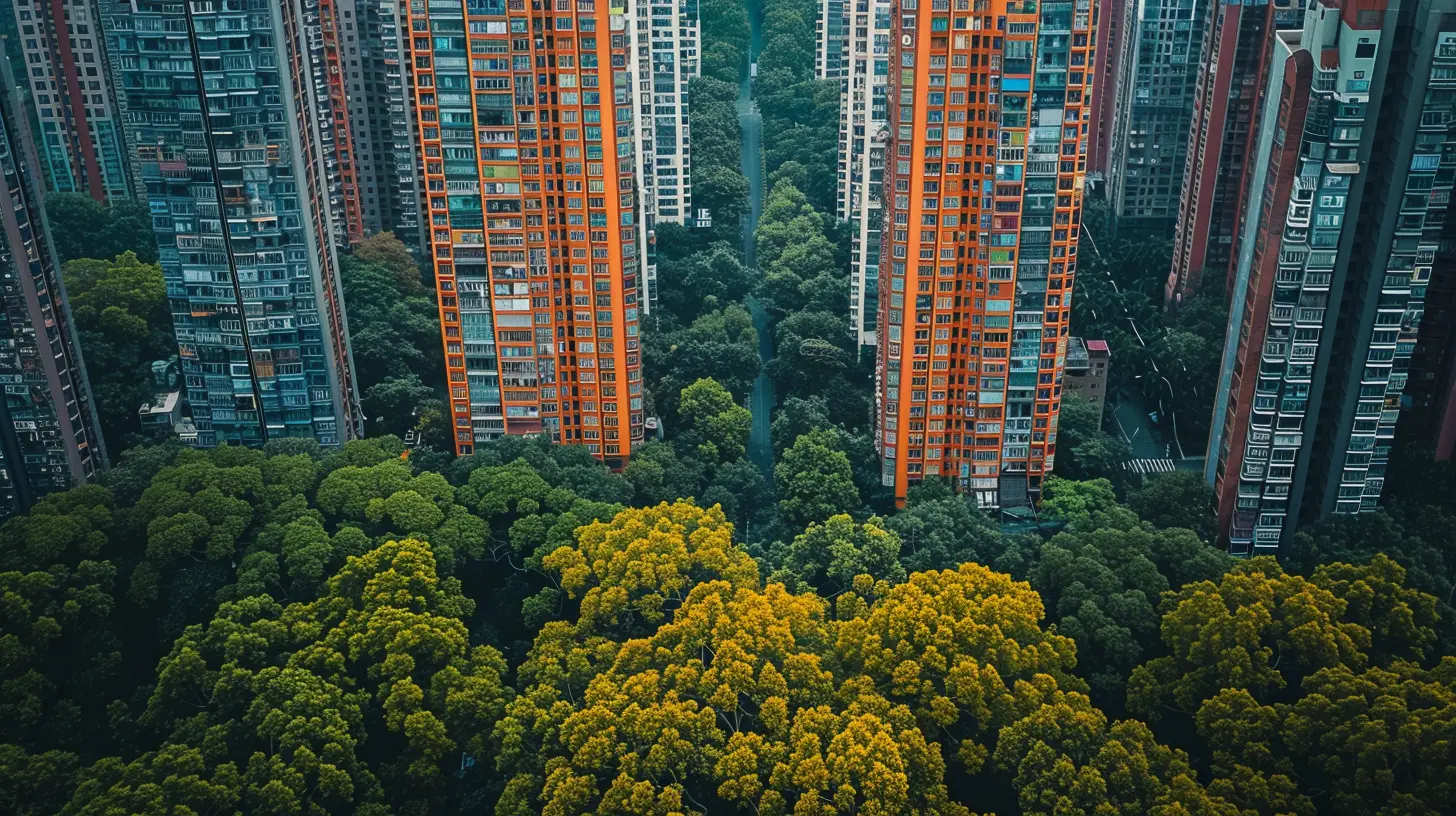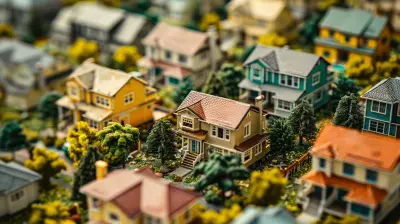How Urbanization is Changing Housing Affordability
3 July 2025
Urbanization is like a double-edged sword—it brings us closer to opportunities, better infrastructure, and a faster lifestyle. But at what cost? One of the most pressing consequences of rapid urban growth is the strain it puts on housing, not just in terms of quantity but more painfully, affordability.
If you've been scratching your head wondering why buying or even renting a place in the city feels like trying to win the lottery, you're not alone. Today, let’s unravel how urbanization is reshaping the housing game and what that means for everyday folks like you and me.
What Exactly is Urbanization, Anyway?
Urbanization is the movement of people from rural areas to cities. It's also about cities expanding physically and economically. Sounds good, right? More jobs, more access to services, more chances to succeed. But with more people cramming into already bustling cities, it's a bit like trying to stuff an elephant into a Mini Cooper—it’s bound to get cramped and messy.Cities are growing faster than ever before. As of today, over half the global population lives in urban areas, and that number is expected to soar. But as more people flood into cities chasing dreams, the price of shelter skyrockets, and affordability becomes a pipe dream for many.
Why Urbanization Impacts Housing Affordability
Let’s break this down. Think of a city as a pizza. When more people arrive, but the pizza size stays the same, what happens? Everyone gets a smaller slice—or some get none at all. That’s exactly what's happening with housing.1. Increased Demand Meets Limited Supply
Cities aren’t expanding fast enough to meet the growing demand. While people are eager to move in, building new homes takes time, money, space, and often, a whole lot of red tape. This mismatch between demand and supply hikes up prices. Low supply + high demand = unaffordable housing. Classic economics, right?2. Gentrification and Displacement
You’ve probably heard about neighborhoods ‘reviving’ or becoming ‘trendy’. While these changes might sound fancy, they often come at the expense of long-time residents. Gentrification pushes up property values and rents, often forcing out families who’ve lived there for decades. New coffee shops and yoga studios are great, but not when they mean you can’t afford your rent anymore.3. Urban Land is Crazy Expensive
Let’s not overlook the fact that land in urban areas is worth a fortune. Developers, understandably, are more likely to invest in high-end condos that guarantee a hefty profit than in affordable housing that barely breaks even. So while luxury apartments shoot up like mushrooms after rain, affordable homes are left in the dust.
Who’s Hit the Hardest?
Not everyone feels the pinch equally. The burden of urbanization’s impact on housing affordability falls heaviest on:- Low to middle-income families struggling to meet basic living costs
- Young professionals and students new to the workforce
- Elderly, single parents, and marginalized communities
- Essential workers like teachers, nurses, and public service staff who often can’t afford to live close to their place of work
Ever heard someone say they commute two hours each way to afford a decent home? That’s not just an exaggeration—it’s a heartbreaking reality for millions.
Rent vs. Buy: A Growing Dilemma
For many urban dwellers, the dream of owning a home feels more distant than ever. And renting? That’s not easy either. Rents are climbing just as fast as home prices. This makes saving up for a down payment feel like trying to bail water from a sinking boat with a teaspoon.In fact, in many major cities, people are spending over 30–50% of their income just on rent. That’s well above the recommended threshold. And that doesn’t even touch utilities, transportation, or food. How are people expected to get ahead when they’re barely getting by?
The Emotional Toll
Let’s stop and talk about the human side of this. Housing isn't just about four walls and a roof. It's about security, stability, and having a place to call your own. When housing becomes unaffordable, it eats away at mental health, relationships, and overall quality of life.Isn’t it exhausting to work hard and still not afford a decent place to live? The stress, the constant moving, the sacrifices—it all adds up. And when you’re worrying about rent every month, it's tough to focus on anything else: career, family, even your own health.
Urban Sprawl—An Inevitable Consequence?
With urban centers packed to the brim, people are pushed farther out into the suburbs or even rural areas. This phenomenon, known as urban sprawl, sounds like a solution but brings its own set of problems.- Longer commutes
- Heavier traffic congestion
- Environmental strain
- Loss of agricultural land
It’s like squeezing the problem elsewhere without actually solving it. Plus, infrastructure in these expanding areas often lags behind, making life there less convenient or connected.
So, What’s Being Done About It?
Good question. The issue is complex, but governments, developers, and communities are starting to wake up to the crisis. Here are a few approaches that are gaining traction:1. Inclusionary Zoning
Some cities are requiring developers to include a set percentage of affordable units in new developments. This ensures that new housing isn't just for the elite but includes space for everyone.2. Public-Private Partnerships
When governments and private developers work together, they can combine resources to create cost-effective housing. These partnerships can streamline projects and get more homes built faster and cheaper.3. Repurposing Old Spaces
Empty office buildings, abandoned malls, and unused public lands are being converted into residential units. Smart, right? It’s like turning yesterday’s leftovers into today’s gourmet meal.4. Rent Control and Assistance Programs
Cities are experimenting with rent caps and housing vouchers to help families stay afloat. While not perfect, these initiatives provide immediate relief for those struggling the most.What Can You Do?
Feeling a little overwhelmed? Totally understandable. But while big solutions rest on lawmakers and city planners, there are still steps you can take:- Stay informed – Understand what’s happening in your city and support policies that prioritize housing equity.
- Get involved – Join local housing advocacy groups or attend town hall meetings.
- Consider alternative living – Co-living spaces, housing cooperatives, or even tiny homes can be more affordable options.
- Budget wisely – As cliché as it sounds, being smart with your money can help you stay ahead, especially in unpredictable markets.
Looking Ahead
Urbanization isn’t going to slow down anytime soon. That’s just the truth. But with innovation, empathy, and a commitment to fairness, we can create cities where everyone has a place—not just the wealthy few.Let’s remember this: housing is a human need, not a luxury. Ensuring it's affordable should be at the heart of every urban development plan. Because a thriving city isn’t about skyscrapers or stock markets—it’s about people, and the lives they build inside those homes.
Final Thoughts
Urbanization is an unstoppable force, but that doesn’t mean the rising cost of housing has to be. By understanding the connection between urban growth and affordability, we’re better equipped to demand changes that benefit everyone, not just the top earners.Whether you're a renter, a buyer, or someone just trying to make sense of it all, know this—you’re not alone. This housing crisis affects millions. But the more we talk about it, and the more we push for real, actionable solutions, the closer we get to making our cities fairer, livable, and truly inclusive.
all images in this post were generated using AI tools
Category:
Urban LivingAuthor:

Lydia Hodge
Discussion
rate this article
2 comments
Blaine Anderson
Urbanization whispers secrets in the city’s skyline, reshaping affordability. As neighborhoods evolve, who truly benefits? Delve into the shadows where opportunity dances with disparity in urban landscapes.
October 25, 2025 at 2:35 AM

Lydia Hodge
Urbanization transforms cities, but often at the cost of affordability, creating a complex landscape where rising opportunity coexists with growing inequality. Understanding this duality is crucial for fostering equitable urban development.
Ariana Montgomery
Urbanization reshapes not just landscapes but the very fabric of society. As cities swell, housing affordability becomes a stark reflection of socioeconomic divides. We must question whom urban development truly serves and strive for solutions that prioritize inclusivity over mere profit, fostering a sustainable future for all.
July 12, 2025 at 3:57 AM

Lydia Hodge
Thank you for your insightful comment! Urbanization indeed poses challenges to housing affordability and highlights the need for inclusive development that benefits all members of society. Your emphasis on prioritizing sustainability and equity is crucial as we navigate these changes.


